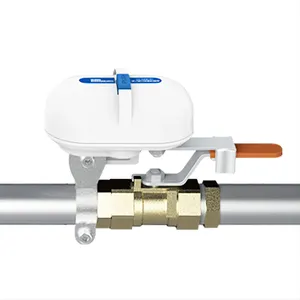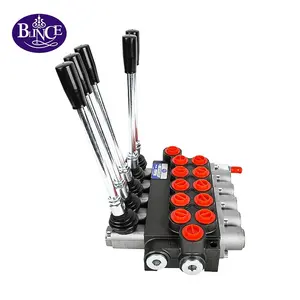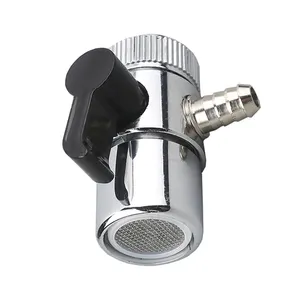
Factory Wireless Zigbee Water Valve /Gas Valve Controller Intelligent Tuya Smart Manipulator/actuator


Hydraulic Loaders Distributor 1-7 Section 80L 21gpm Operated By Joystick Hydraulic Directional Control Valve For Forklif























Diverter valves are essential components in managing the direction of flow within a piping system. These valves are pivotal in systems that require the distribution of fluids or gases to different destinations from a single source. By redirecting the flow, diverter valves can help conserve water, optimize system efficiency, and enhance the functionality of a plumbing network.
The versatility of diverter valves is evident in their various types, such as the shower diverter valve, which is integral in directing water from the tub faucet to the showerhead. Similarly, the 3 way diverter valve is commonly used in applications where fluid flow needs to be directed between three different outlets or sources. These valves are not limited to showers; they are also employed in complex industrial systems, irrigation setups, and residential plumbing networks for efficient fluid management.
Diverter plumbing solutions come in a range of materials, each selected for its durability and suitability to the fluid type and system pressure. Common materials include brass, stainless steel, and PVC, catering to different environmental and operational demands. Features may include ease of installation, resistance to corrosion, and compatibility with various temperature ranges, ensuring that the valves can operate effectively in diverse conditions.
The use of a shower splitter valve or a tub and shower diverter extends beyond mere functionality. These valves offer the advantage of space-saving in environments where separate lines might be impractical. Additionally, they contribute to water conservation by efficiently managing the flow and reducing waste. In industrial settings, the precision of a delta diverter valve or a moen diverter valve can be crucial in maintaining system integrity and process accuracy.
When selecting a shower valve and diverter, it is important to consider the compatibility with existing fixtures, the material's suitability for the fluid type, and the ease of operation. For those needing to address a malfunctioning unit, understanding the process of fixing shower diverter issues is beneficial. It is also crucial to consider the valve's capacity to handle the system's pressure and temperature demands.
In conclusion, whether it's for a residential shower system or a complex industrial process, the right diverter valve can significantly enhance system efficiency and functionality. With a comprehensive range of options available, finding the appropriate valve to meet specific system requirements is streamlined. It is essential to assess the system's needs carefully and choose a valve that offers the best compatibility and performance.